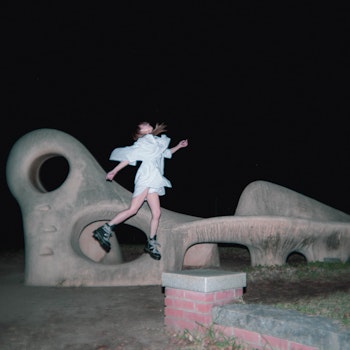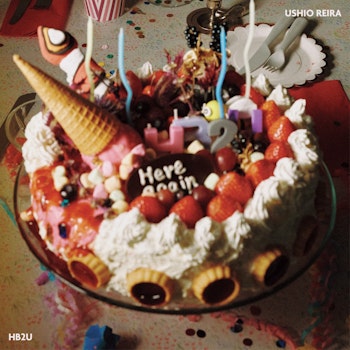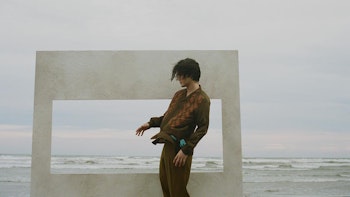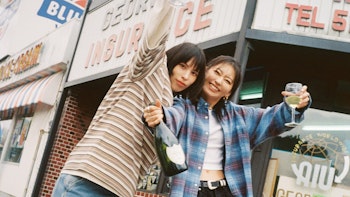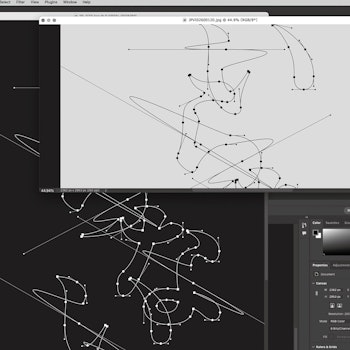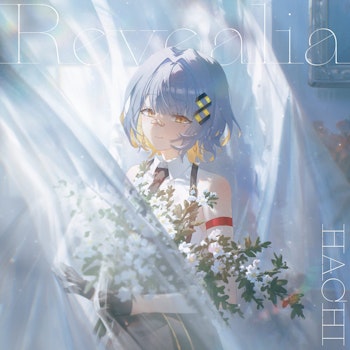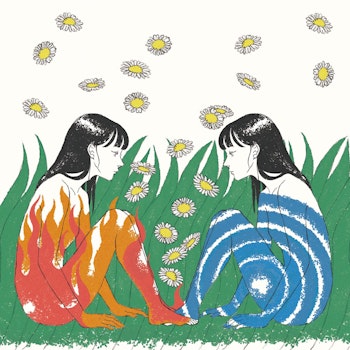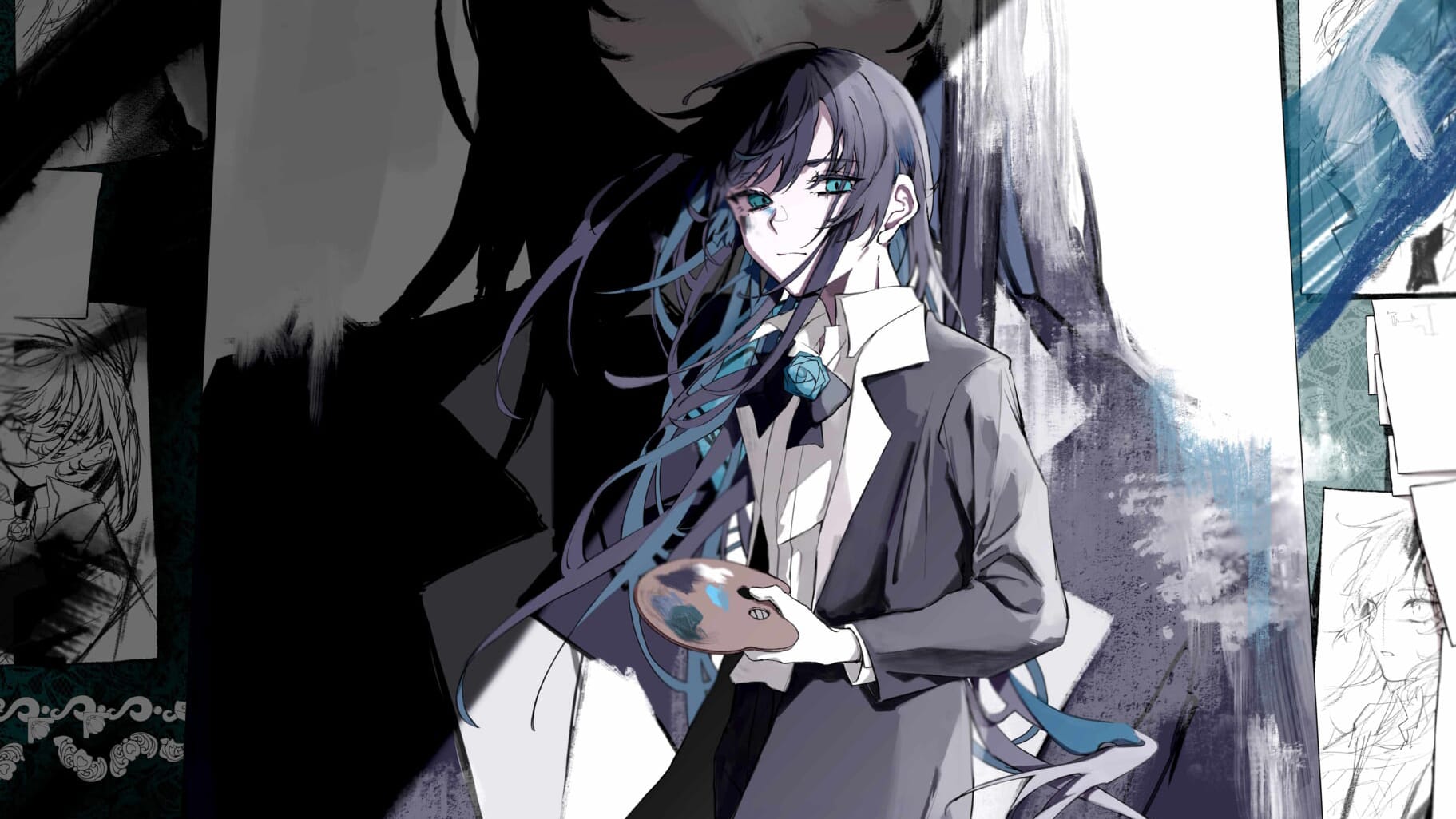
Ado is the female vocalist of the moment in 2024. It’s a year which began with an 11-country world tour, before in April at the age of 21 she became the first solo female artist to perform at the newly-rebuilt National Stadium. Her raw, powerful voice entertained over 70,000 fans for both sold-out days in a show that even included a drone show and fireworks, Then, starting in July, Ado embarked on her Profile of Mona Lisa national arena tour that recently concluded at Yokohama’s K-Arena, doing all of this while still finding time to help produce an idol group called Phantom Siita while releasing a new album in July and 5 digital singles, with her first CD single including a collaboration with Hatsume Miku first performed at the National Stadium releasing later this month.
All the while retaining her anonymity. Ever since bursting into the national scene on the day before her 18th birthday with her viral major debut single "Usseewa", she has become one of the most dominant voices in Japanese pop music and a representative of Vocaloid and Utaite cultures - online anonymous musicians performing covers and original songs on sites like Nico Nico Douga - and their growing influence on the broader musical landscape in Japan. Ado instead uses a visual persona created by Orihara while performing live mostly within a translucent box and entirely in silhouette.
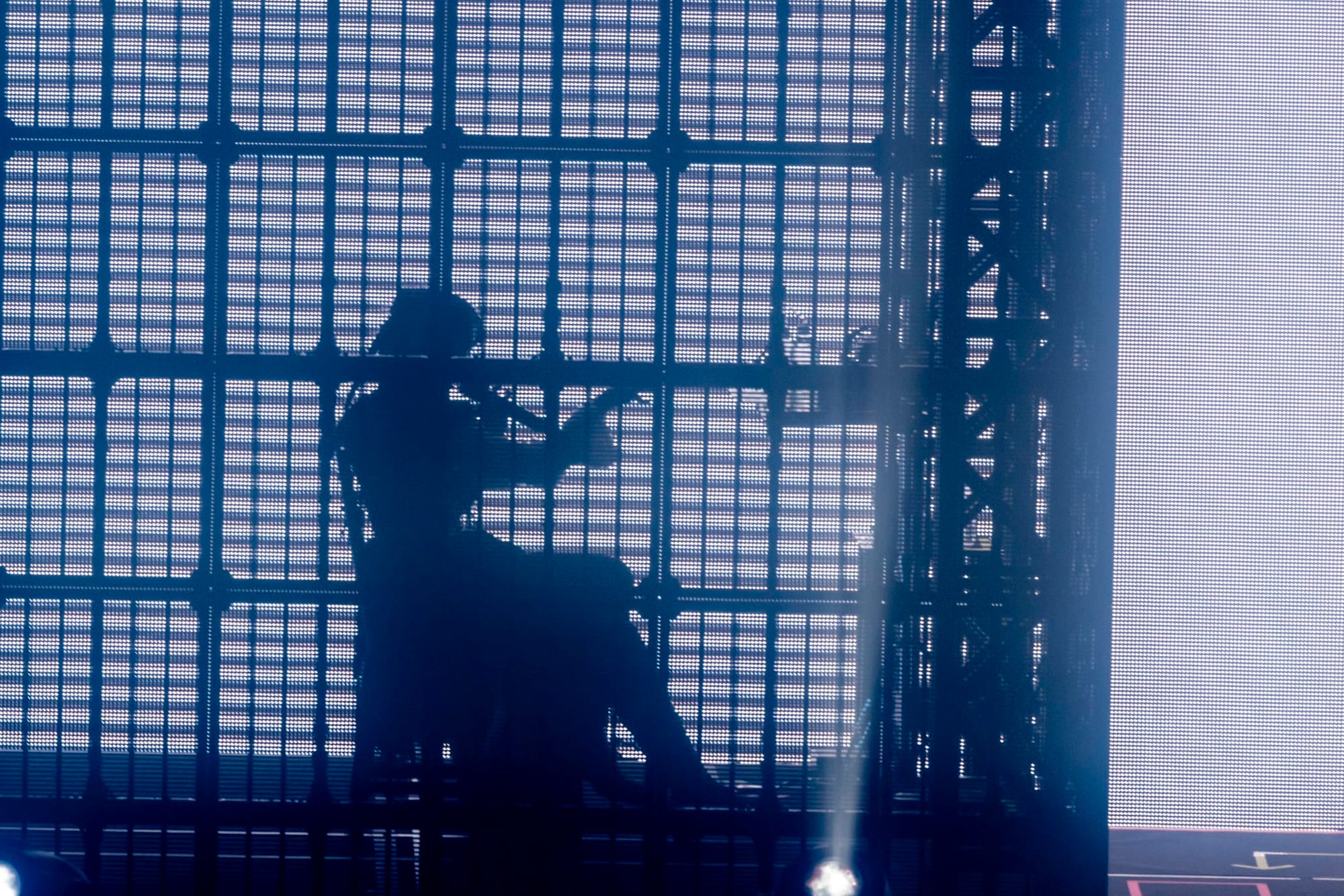
Yet even without a visual connection, she has connected with millions of fans, her perceived authenticity being the reason why 20,000 fans turned out daily for the final stop of her tour (excluding one performance postponed and rearranged for December).
Many, like myself, turned up hours in advance. Many were in cosplay inspired by the characters of Ado’s music videos, while others were dressed ornate in a mix of formalwear and frills to match Ado’s live costumes and persona. Sanrio, in an official partnership, has their own character inspired by Ado named Adorozatorumary, and though no merchandise for the character was on sale at the event, a nearby Village Vanguard had plenty, with a costume mascot making several appearances across the weekend to interact with fans.
LA LA LA LAAAA LA READY FOR MY SHOW!
— Alicia Haddick/アリシア @ AdoモナリザK-Arena両日 (@socialanigirl) October 14, 2024
みんなのコスプレはすごかった!@Site_Adosansuki @illadition @AdoTokyo pic.twitter.com/hutaB8kpYt
Combined with the soft autumn breeze from the seas of the Yokohama coastline, the vibe felt conciliatory yet nonetheless excited. It was a time for strangers to meet, to exchange gifts of artwork, and celebrate a shared love. Flower displays put together by fans to commemorate the moment were displayed outside the venue by staff, many with additional details including handmade dresses and thrones fit for an idol, attached to notes listing the hundreds of names that worked together to fund these elaborate bouquets. ‘My name is on that one,’ noted one person I met mere hours later as we walked past the display, beaming with pride not just for the joy it brought other fans but for being able to contribute something that visibly represented love for the artist they adore.
Inside the newly-opened purpose-built K-Arena excitement was palpable as the crowd roared and the lights dimmed. Not for Ado, but for Phantom Siita, who performed a 2-song warm-up to each show on the tour. This is a ‘home crowd’ of sorts, filled with audiences that by association to Ado will have some affinity for the group by mere association. That being said, it would be remiss to diminish the impressive performance of a genuinely paradigm-shifting idol group in an industry in desperate need of change.
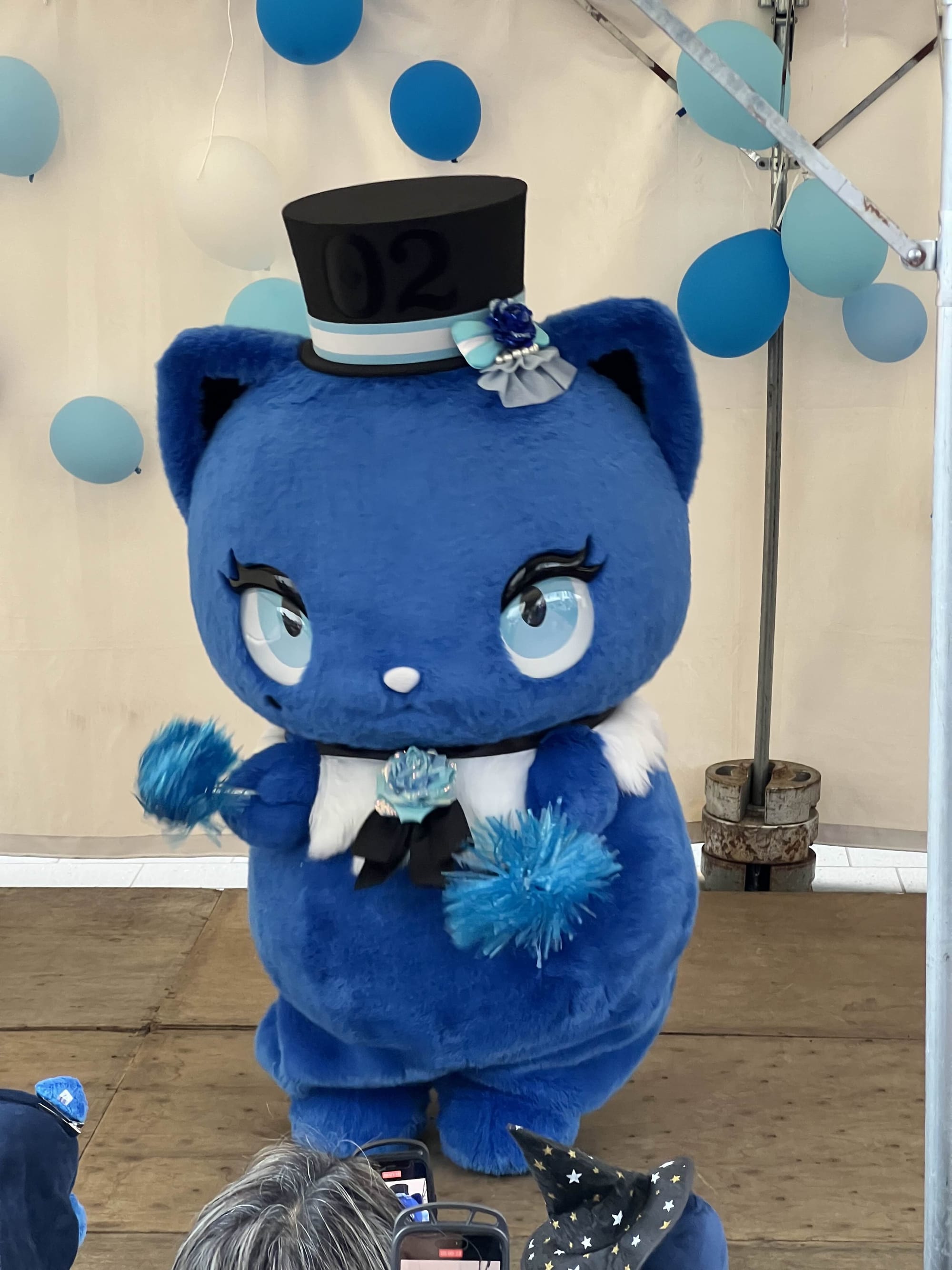
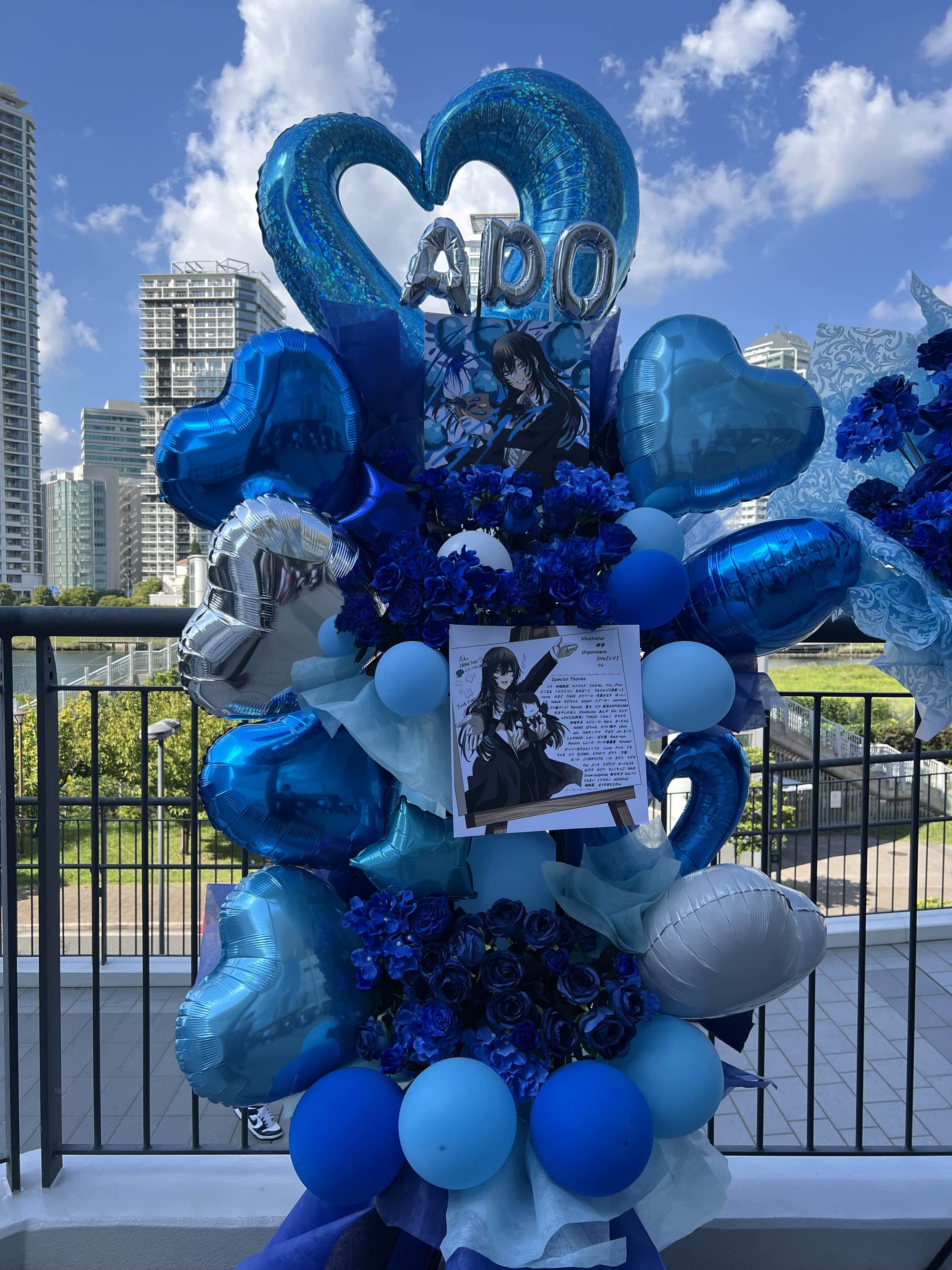
Compared to the heights of Japanese idol culture in the 2000s and early 2010s defined by groups like Momoiro Clover Z, Morning Musume, AKB48 and Nogizaka46, newer groups have struggled to fill the void as many simply have grown tired of the familiar, clean image portrayed. The concept of the idol in Japanese pop has been defined by the beauty and image of the performer, one that can be viewed both with aspiration and heartfelt supportive intent, a performer you can connect with for their personality and looks. They represent an imagined ideal whose performance, even if not perfect, comes from a place of genuine desire to grow on that stage that makes their journey worth supporting.
Tastes have changed. This ideal is often rooted in a sense of youthful hope even across musical genres, and this is detached from a society with growing anxiety over the future and more open about personal discontent. Even as the previously-named groups continue to perform they’ve struggled to attract new fans, and the space has since been filled by K-pop and so-called anti-idols that still reflect many of the inspirational and aspirational ideals while projecting a rebellious image of anger at the world and a fight for a place within it. Enter Phantom Siita.
Ado has produced the group under a retro horror concept that subverts the expected image by performing songs that twist the playful ideals and innocence typically associated with the idol concept. Rather than a song on beauty in friendship, it’s tinged with betrayal, bullying, violence. Their youth and the expectation of joy are possessed by these ugly truths and excised on stage through erratic and violent performance, strong vocals and forceful dance that shocks as much as it enthralls.
Most notably, it’s the sort of group that only Ado could produce, her name alone giving them a major step above other idols and opportunity to make a first impression on larger stages that many would not get access to. No other idol could make their pre-debut at Ado’s tour or hold their first solo concert next month at the dream venue of all artists, Nippon Budokan. Simply having that platform allows them to subvert expectations and be seen for their raw talent, a chance to set a new image for idols that could fuel a mainstream revival.
And wow do they have that talent.
Yet this was just a warm up, and as they left the stage after two songs, Ado took to the stage in the translucent box synonymous with her live performance. Her performance swung between classic hits from her first album, "Backlight" and numerous other songs from One Piece Film RED, and "Show", while also performing numerous songs from her new album like "All Night Radio", "0" and "Rule".
Without a face, the audiovisual experience beyond the performer becomes far more important in order to connect with audiences. In response, Ado’s lives have typically had some of the strongest visuals I’ve witnessed, with this being no exception. The staff takes advantage of translucent screens for both the background of the stage and even for Ado’s box, a step above traditional large screens because of their free form canvas not limited by the dimensions of a TV. For a song like "Rule", the team for Ado uses this to great effect, compressing the visuals like the expectations of society trap our actions to a small frame behind Ado’s box until the chorus sees large hands literally pull the screen apart to expand the visuals into a frenetic explosion of red as Ado screams an anger at the ‘stupid’ rules that tie people down from freedom.

At these points the lyrics for the song even burst free from Ado’s silhouette in a rushed scroll, as though the words themselves have been unleashed from the box in frustration. And this is just one example.
By the time "Watashi wa Mondaisaku" is performed, the box has been replaced by an extended one that covers the length of the stage, and we witness Ado’s silhouette whimsically bound around while breaking the tune of the song down in real time to a nuisance-like conversational extent to superb effect.
Each song brought new spectacle, but each performance also remained true to the spirit of the song and person behind it. At moments where she stopped to speak, even a pin could be heard falling in the silence. Honesty about the strife of the tours and her own insecurities, coupled with an immense pride at her platform and chance to share her songs and beloved Vocaloid and Utaite with the world. Improving herself in the hope of perhaps loving herself.
This is the other side of Ado that many find so impactful. Beyond the noise and raw vocals is someone thrust into a spotlight from a moment of insecurity and doubt, and is still struggling with self-worth even as the world anticipates and appreciates her sound. These insecurities and battles with depression and self-worth that are not only rarely expressed by Japanese artists but relatable and expressed through word and song connect. Part of what makes Ado so enthralling live is that amidst her strength is a rawness that can never be captured on record, a cry for the world to listen that can’t be turned away from.
In the encore, Ado stepped out of her box. Still in silhouette, she held the guitar she gave up playing as a teenager. Playing beloved songs like "Himawari" and even a cover of a song from Bocchi the Rock on her guitar, she ended the concert with an all-new song. "Shoka" is Ado’s first song with self-written lyrics and composition, written to capture her feelings of self-hatred at the age of 17 and rewrote today to reflect her modern worldview.
‘No matter how much I cling to wanting to die, it’s all meaningless’ she cries of the insecurities she’s expressed before, tinged with a genuine desire to learn what it means to love herself. In the music video released later it comes full circle, the box she performs in on stage being both the place she hides and the place she can come onto that stage and, without holding back, scream in hope of finding an answer.
Perhaps more than saying Ado has become a representative of the movement of Vocaloid and Utaite from the worlds of online uploads to the core of the music industry, Ado is a representative of a generation whose anxieties have been unleashed in these mediums, these songs, and the Wild West of the internet. More than any other artist, she is the voice of a generation who can’t see themselves represented in the tapestry of the future and is seeking answers. They’re a generation that also grew and continues to grow on free access to an online world where they can anonymously scream to the void their honest truth without a face to hold them back.
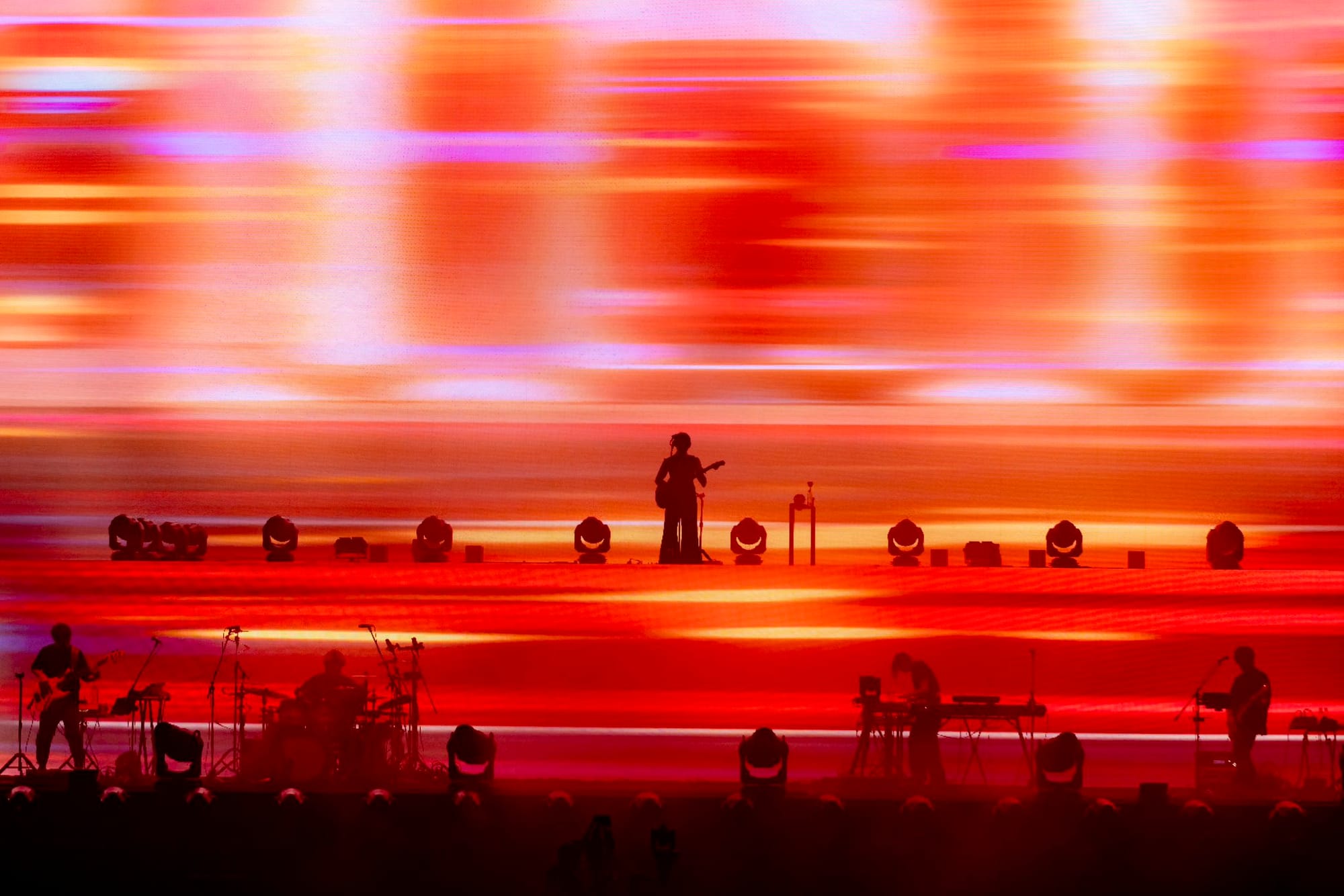
As this generation has come of age, many of the musicians of this era that have since entered the industry came from this world, and the intensely online subcultures that Ado has since graduated from while continuing to hold close. It can be seen in the growing desire for anonymity in artists of her age that have come to prominence at the same time, and the brutal honesty under which they scream their truth into the void.
Leaving Ado’s tour, it’s hard to doubt that she is anything other than the voice of Japanese youth right now. At Universal Studios Japan in 2023 her song "Show" acted as a theme song for a Halloween event, returning in 2024 due to the enduring popularity of a song that’s never left the top of the streaming charts since its release. Her songs rack millions of listens in hours. Not only is she delivering a performance and sound like no other, it’s an honest voice begging to be heard.
And the people are listening.
